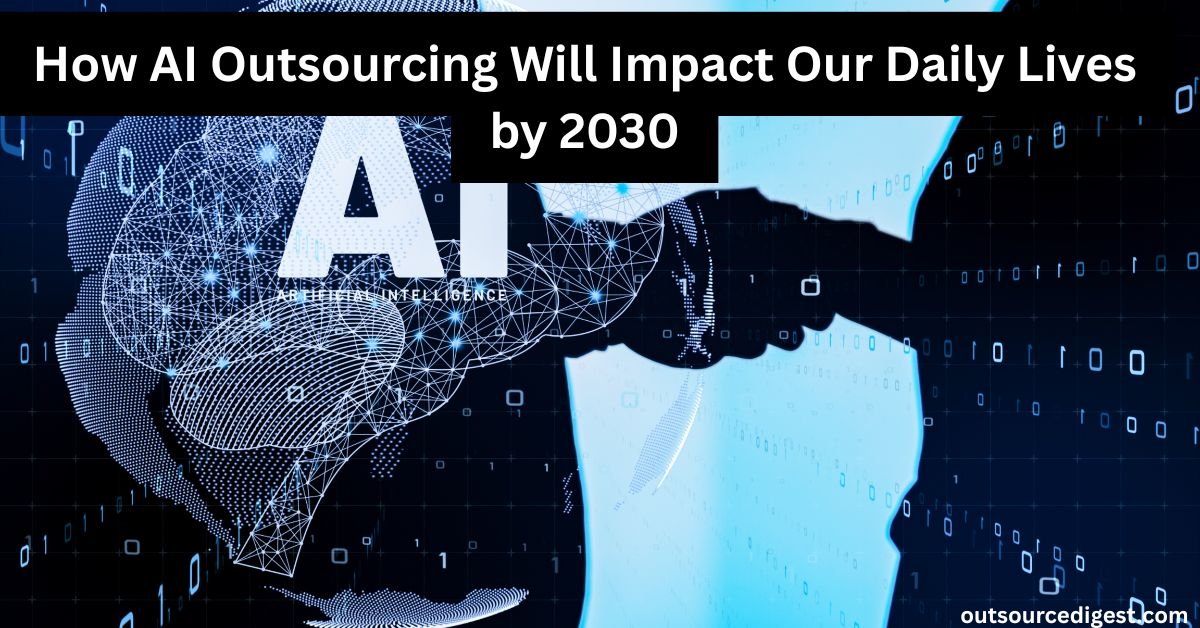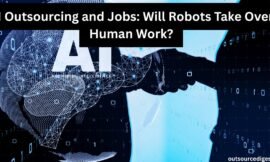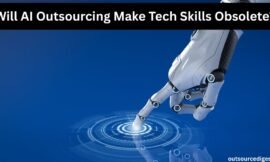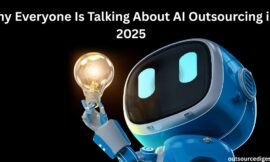By 2030, AI outsourcing won’t just be a business strategy—it will be part of everyday life. From healthcare and education to entertainment and shopping, outsourcing AI tasks will influence how we live, work, and connect with each other.
- Prediction 1: Personalized AI Outsourcing Becomes Normal
- Prediction 2: AI Outsourcing Transforms Jobs and Careers
- Prediction 3: Healthcare Outsourcing Will Save Lives
- Prediction 4: Education Will Be Revolutionized
- Prediction 5: Entertainment and Creativity Will Blend Humans and AI
- Prediction 6: Retail and Shopping Will Be Fully Automated
- Prediction 7: Global AI Outsourcing Hubs Will Rise
- Prediction 8: Privacy and Ethics Will Define the Debate
- Prediction 9: Daily Life Will Blend Seamlessly with Outsourced AI
- The Balance: Humans and AI Together
- Conclusion
Right now, in 2025, AI outsourcing is already trending. But what’s next? How will it evolve in the coming years, and what will daily life look like once AI becomes fully embedded in our routines?
This article highlights the top predictions for AI outsourcing by 2030, covering its impact on jobs, industries, personal lifestyles, and even global culture.
Prediction 1: Personalized AI Outsourcing Becomes Normal
By 2030, outsourcing AI won’t be limited to companies—it will be deeply personal. Individuals will outsource everyday tasks like:
- Personal finance: AI managing budgets, investments, and bills.
- Health tracking: outsourced AI assistants analyzing real-time medical data.
- Daily scheduling: AI outsourcing platforms booking appointments, planning meals, or even handling travel.
Instead of multiple apps, people may use a single outsourced AI hub acting as a “digital life manager.”
Prediction 2: AI Outsourcing Transforms Jobs and Careers
Jobs won’t disappear entirely, but roles will shift dramatically. By 2030:
- Routine jobs will be fully automated.
- New careers, like AI ethicists, AI outsourcing managers, and human-AI collaboration coaches, will emerge.
- Freelancers will outsource their own work to AI platforms, essentially becoming “AI-powered entrepreneurs.”
This transformation will raise new debates about education, skill development, and universal basic income.
For a detailed breakdown, see: “AI Outsourcing and Jobs: Will Robots Take Over Human Work?“.
Prediction 3: Healthcare Outsourcing Will Save Lives
Healthcare is one of the most promising areas for AI outsourcing. By 2030:
- Outsourced AI diagnostics will detect diseases earlier and more accurately than humans alone.
- Virtual AI nurses will monitor patients at home, reducing hospital loads.
- Cross-border AI outsourcing will allow hospitals in the U.S. to collaborate instantly with AI-powered labs overseas.
Yet, ethical concerns about patient data privacy will remain at the center of discussion.
Prediction 4: Education Will Be Revolutionized
By 2030, students may learn through outsourced AI tutors available 24/7. These tools will:
- Offer personalized lessons tailored to learning styles.
- Automate grading and administrative work for teachers.
- Connect students worldwide with outsourced AI-driven education platforms.
While this boosts accessibility, some worry it could reduce human interaction in classrooms.
Prediction 5: Entertainment and Creativity Will Blend Humans and AI
Imagine outsourcing your favorite artist’s next album to an AI collaborator. By 2030:
- Filmmakers will outsource special effects to AI studios overseas.
- Gamers will design entire worlds by outsourcing development to AI-powered engines.
- Every day, creators will outsource video editing, music composition, and graphic design to AI tools—making content creation faster and cheaper.
This raises a big question: will AI outsourcing enhance creativity or make it less human?
Prediction 6: Retail and Shopping Will Be Fully Automated
AI outsourcing will change how we shop. By 2030:
- Outsourced AI assistants will find the best deals, order groceries, and manage returns automatically.
- Retailers will outsource logistics to AI-driven supply chains, making deliveries faster.
- Personalized shopping recommendations will feel less like ads and more like curated experiences.
For small businesses, outsourcing AI could level the playing field with big retailers.
Prediction 7: Global AI Outsourcing Hubs Will Rise
Countries specializing in AI outsourcing will become global leaders. By 2030:
- India, the Philippines, and Latin America may dominate customer-focused AI outsourcing.
- Eastern Europe could emerge as a hub for AI-powered cybersecurity outsourcing.
- Africa may see growth as a rising hub for affordable AI outsourcing talent.
This global redistribution of work will reshape economies and international partnerships.
Prediction 8: Privacy and Ethics Will Define the Debate
By 2030, the main concern won’t be whether AI outsourcing works—it will be whether we trust it.
- Who owns the data used by outsourced AI providers?
- How do we prevent bias in outsourced algorithms?
- Should governments regulate how far outsourcing can go in sensitive areas like law or healthcare?
Public debates on these issues will likely shape the legal and cultural boundaries of AI outsourcing.
Prediction 9: Daily Life Will Blend Seamlessly with Outsourced AI
Perhaps the biggest change is that people won’t even notice AI outsourcing anymore. By 2030, it will be so integrated that:
- Outsourced AI will run your car maintenance, home security, and health monitoring in the background.
- Your work, leisure, and personal life will all be powered by invisible AI partners.
- Outsourcing decisions—once seen as corporate strategies—will become everyday personal habits.
The Balance: Humans and AI Together
The big picture? AI outsourcing won’t replace humans—it will redefine what it means to live and work. By 2030, collaboration will be the default mode. Humans will focus on creativity, empathy, and critical decision-making, while AI outsourcing handles speed, efficiency, and scale.
Conclusion
By 2030, AI outsourcing will touch every part of our daily lives: from jobs and healthcare to shopping and creativity. While it promises convenience, affordability, and innovation, it also raises questions about privacy, ethics, and human purpose.
The future won’t be about robots replacing humans—it will be about humans learning to thrive in partnership with outsourced AI systems.
The only question left is: are you ready for that future?





